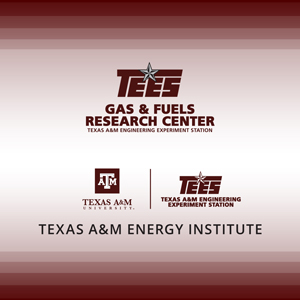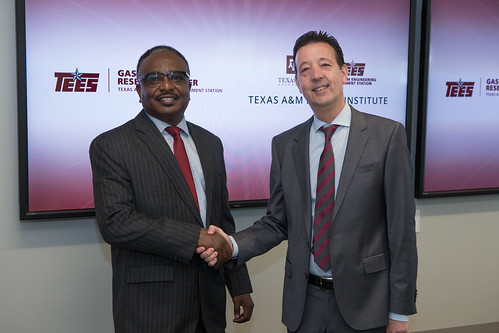The two organizations will collaborate to capitalize on major research, education, and training efforts.

The leadership of the Texas A&M Energy Institute (TAMEI), a joint institute between Texas A&M University and the Texas A&M Engineering Experiment Station, along with the Texas A&M Engineering Experiment Station’s (TEES) Gas and Fuels Research Center (GFRC), have announced a new partnership that will align the research, education, and training interests of both the organizations for mutual benefit.
With common interests in the pursuit of the advancement of knowledge and science related to energy-related and energy-intensive processes, systems, and opportunities, TAMEI and GFRC’s objectives are well-aligned, complementary, and stand to provide mutual benefits to Texas A&M University, the Texas A&M Engineering Experiment Station, the Texas A&M University System, the state of Texas, and the broader community.
Further, the leaders of these organizations anticipate added value and enhancement for both organizations through enhanced collaborations between the two parties.
“We very much welcome this partnership,” said Stratos Pistikopoulos, the Interim Co-Director and Deputy Director of the Texas A&M Energy Institute. “This will allow us to create synergies and opportunities between our two organizations in the strategically important energy space of natural and shale gas and fuels. Further, this will strengthen the existing relationships between our Qatar campus and main campus for energy research, education, and training.”
“Texas A&M University has played a critical role in the energy future by leading the oil era in the United States, with many impacts globally, said Nimir O. Elbashir, Director of the TEES Gas and Fuels Research Center. “The partnership of the TEES Gas and Fuels Research Center with the Energy Institute provides an excellent opportunity for the university to now lead in the shale oil and gas era.”
It is anticipated that new approaches will be discovered, previously unavailable research opportunities will be presented, and diverse sets of individuals will gain mastery of concepts through innovative educational programs.
About the Texas A&M Energy Institute
The Texas A&M Energy Institute is a joint institute between Texas A&M University and the Texas A&M Engineering Experiment Station (TEES). The institute engages undergraduate and graduate students, postdoctoral associates, research staff, and faculty members in the study and development of innovative technologies and policies for energy production and energy conservation during energy evolution. Special attention is paid to elucidating the complexity among the interacting components of energy, economics, law, public policy, and the environment.
The institute is the home of innovative educational programs, including the 10-month Master of Science in Energy and graduate-level Certificate in Energy, that target both students and professionals who want to be educated on the high-impact and interdisciplinary facets of the energy research landscape through quantitative analytical methods and multi-scale systems based approaches.
With approximately 300 faculty affiliates from seven colleges and schools at Texas A&M University, more than 35 Texas A&M University departments, two Texas A&M University branch campuses, and five Texas A&M University System member institutions, along with a unique community of more than 450 doctoral students and postdoctoral fellows in the Texas A&M Energy Research Society, cutting-edge solutions are being realized through true interdisciplinary collaborations that will address the complexity and challenges of the world’s energy future.
About the TEES Gas and Fuels Research Center
The TEES Gas and Fuels Research Center is a multidisciplinary research center that is led by Texas A&M University at Qatar and involves 22 professors from the Qatar campus and Texas A&M University’s main campus in College Station. The center draws on experience from different engineering programs including chemical engineering, petroleum engineering, material engineering and mechanical engineering.

